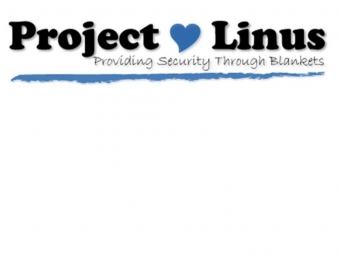- Education Topics
- Achievement Gap
- Alternative Education
- American Education Awards
- Assessment & Evaluation
- Education during COVID-19
- Education Economics
- Education Environment
- Education in the United States during COVID-19
- Education Issues
- Education Policy
- Education Psychology
- Education Scandals and Controversies
- Education Reform
- Education Theory
- Education Worldwide
- Educational Leadership
- Educational Philosophy
- Educational Research
- Educational Technology
- Federal Education Legislation
- Higher Education Worldwide
- Homeless Education
- Homeschooling in the United States
- Migrant Education
- Neglected/Deliquent Students
- Pedagogy
- Sociology of Education
- Special Needs
- National Directories
- After School Programs
- Alternative Schools
- The Arts
- At-Risk Students
- Camps
- Camp Services
- Colleges & Universities
- Counties
- Driving Schools
- Educational Businesses
- Financial Aid
- Higher Education
- International Programs
- Jewish Community Centers
- K-12 Schools
- Language Studies
- Libraries
- Organizations
- Preschools
- Professional Development
- Prom Services
- School Assemblies
- School Districts
- School Field Trips
- School Health
- School Supplies
- School Travel
- School Vendors
- Schools Worldwide
- Special Education
- Special Needs
- Study Abroad
- Teaching Abroad
- Volunteer Programs
- Youth Sports
- For Schools
- Academic Standards
- Assembly Programs
- Blue Ribbon Schools Program
- Educational Accreditation
- Educational Television Channels
- Education in the United States
- History of Education in the United States
- Reading Education in the U.S.
- School Grades
- School Meal Programs
- School Types
- School Uniforms
- Special Education in the United States
- Systems of Formal Education
- U.S. Education Legislation
- For Teachers
- Academic Dishonesty
- Childcare State Licensing Requirements
- Classroom Management
- Education Subjects
- Educational Practices
- Educational Videos
- Interdisciplinary Teaching
- Job and Interview Tips
- Lesson Plans | Grades
- Professional Development
- State Curriculum Standards
- Substitute Teaching
- Teacher Salary
- Teacher Training Programs
- Teaching Methods
- Training and Certification
- For Students
- Academic Competitions
- Admissions Testing
- At-Risk Students
- Career Planning
- College Admissions
- Drivers License
- Educational Programs
- Educational Television
- Educational Videos
- High School Dropouts
- Higher Education
- School Health
- Senior Proms
- Sex Education
- Standardized Testing
- Student Financial Aid
- Student Television Stations
- Summer Learning Loss
Home | National Directories | Volunteer Program | Project Linus - South Bay / San Jose, CA Chapter |
Project Linus - South Bay / San Jose, CA Chapter

Basic Information
Address: 11061 S Stelling Rd
Cupertino, CA 95014
Phone Number: 408-252-1858
Email: sjlinus@comcast.net
Director: Sharon Lee, Chapter Coordinator
Additional Information
Causes Served: Seriously ill and otherwise traumatized children in local areas
Population Served: Children ages 0 to 17 years who are seriously ill or otherwise traumatized and can use some extra love and support via the gift of a new, handmade, washable blanket
Ages for Volunteer: 10- adult (younger with adult supervision - very popular with youth groups, Scouts and retirement ages alike!)
Hours of Service: any number of hours - simple no-sew tied fleece blankets can be made in a hour)
Minimum Hours Required: No minimum
Days of Service: Any day (most 'blanketeers' work on their own, on their own schedules)
Mission Statement:
Project Linus is a volunteer, non-profit organization with a two-fold mission: First, it is our missing to provide love, a sense of security, warmth and comfort to children who are seriously ill, traumatized or otherwise in need through the gifts of new, handmade blankets and afghans, lovingly created by volunteer 'blanketeers'. Second, it is our mission to provide a reqrding and fun service opportunity for interested individuals and groups in local communities, for the benefit of children. Anyone, any age, can help these children. It is within your power to make a difference.
Philosophy/Belief Statement:
The blankets we receive are donated through local support organizations (see our web site for the current list) to chose children in need of support in our area.
Program History:
Project Linus began in December 1995 after Karen Loucks was inspired to make blankets for her local children's cancer center. Since then, Project Linus has expanded to include children who are seriously ill or traumatized in many ways. Through our nearly 400 chapters across the nation, Project Linus has to date provided over 3 million blankets to children in need.
Events:
Many local groups (Scouts, retirement homes, civic organizations, schools, youth groups) sponsor their own 'Make A Blanket Day' events. We are happy to provide helpful information to organize such events. Both the national website www.projectlinus.org and our local chapter website www.sjlinus.org have lots of helpful information (free instructions, blanket specifications, information on our next monthly gathering/meeting, photos of blankets and blanket makers ('blanketeers'), drop-off locations for completed blankets and much more).
Additional Information:
New handmade washable blankets of all kinds and many sizes are greatly needed. (30x30 inches to 60x72 inches) Crcoheted, knitted, quilted, tied fleece and flannel receiving blankets are many of the types that are made by our wonderful volunteers. Please join us by making a blanket today and donating it through on eof our many drop-off locations (see our web site www.sjlinus.org). We are also in need of blanket-making supplies (eg fleece, yarn) for those volunteers who have th etime and the talent to make blankets but not the means to provide all the materials. Have a yarn drive or 'penny war' today for Project Linus (or come up with another great idea - we'll work with you!) It's fun and you'd be helping many children in your area and as well as supporting other volunteers to make a difference in our community.




